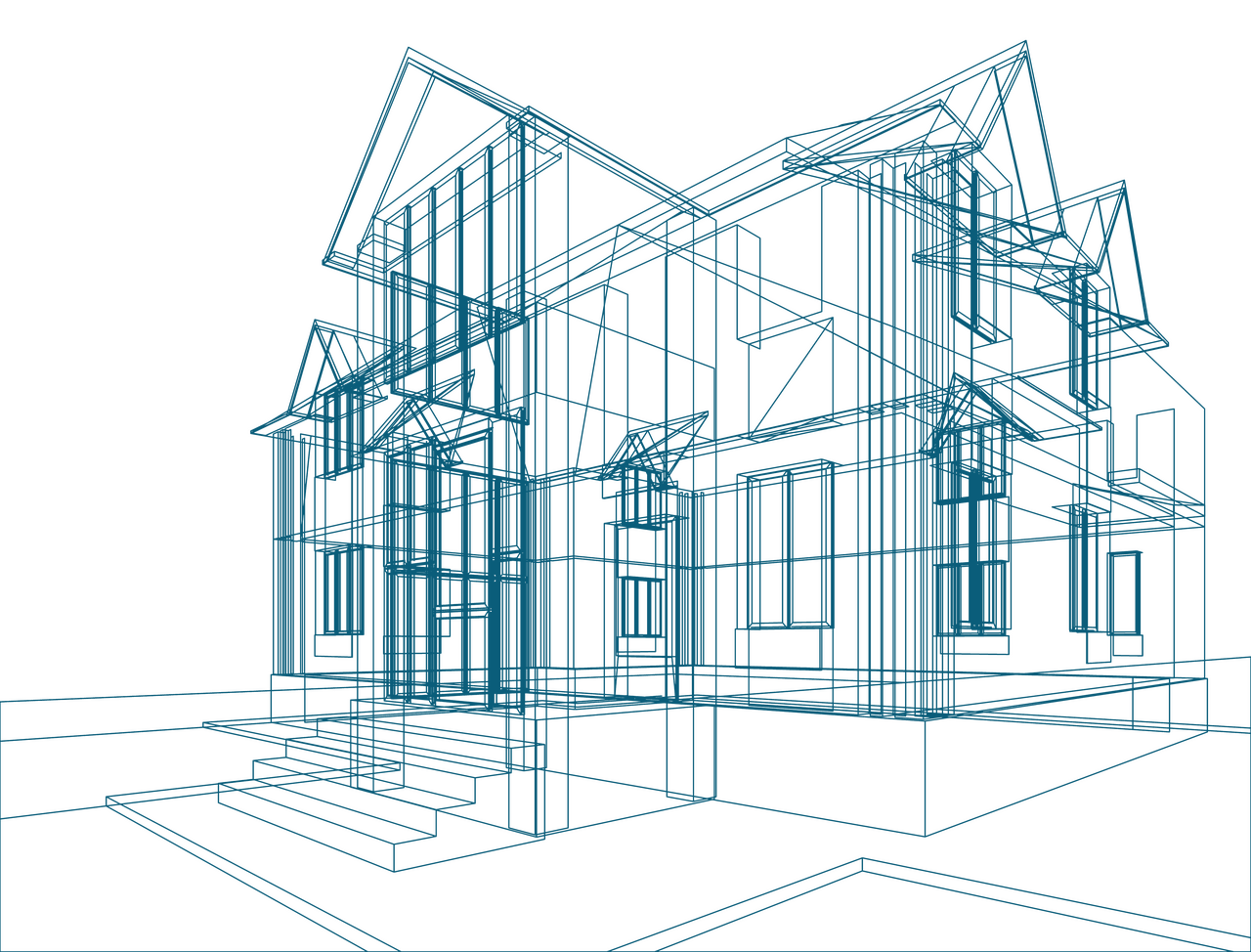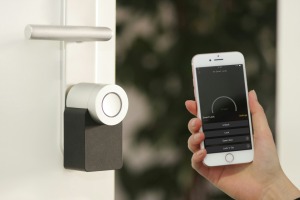


News I published 09 November 2021
Online orientation for home improvement products differs per country and product group
Consumers often start their orientation for home improvement products online. In fact, online orientation has become so normal that consumers find it useful for every product category regardless of whether they prefer to buy offline or online. That means that even when it concerns products that are mainly bought through offline channels, it can be very lucrative for manufacturers and brands to increase their presence on online information channels.
The trick is to know how consumers orient online for the type of products you offer. That is one of the central topics in the Q2 2021 report of USP Marketing Consultancy’s
European Home Improvement Monitor. We asked 6,800 European consumers from 11 countries what online information sources they use the most for their orientation on eight categories of home improvement products.
Google and Amazon are the most used online sources but not everywhere
When looking at the European averages, Google and Amazon are clearly the most used online sources. Both are used by 42% of European consumers. Websites of DIY stores follow closely though, as 39% of the consumers report using them for their online orientation. Shop websites and brand websites, both used by 28%, share the third place. They are followed by a mix of social media platforms, websites and newsletters, of which YouTube is used the most.
These are the averages of 11 European countries, however, and Google and Amazon do not share the first place in most-used sources in every country. When looking at individual countries, Amazon has a strong presence in Italy, Germany, Spain and the UK, but not in the Netherlands, Belgium, Poland, Denmark and Sweden, for instance. In certain countries, Google or Amazon also have more competition from other sources. In the UK and France, for instance, DIY store websites are used more than Google or Amazon.
Differences per product group and country make the difference
Aside from differences per country, the sources consumers use for online orientation on home improvement products differ per product group as well. European consumers most often use Amazon as a source of information about power tools, for instance, but for information on paint, the websites of DIY stores are used more. Youtube is used the most for roof windows, by 31% of European consumers.
These are just a few examples of the many differences in popularity of online information sources per product group. These differences may seem small at times, but together with the previously mentioned differences per country, they can make the difference between the failure and success of your marketing strategy.
To make sure your brand grasps the attention of consumers early in the orientation phase of their customer journey, it is essential to know which channels and sources consumers use most often for your specific product group in the countries you are active in. For that level of detailed information about online orientation for eight separate product groups of home improvement products in 11 European countries, we refer you to the Q2 2021 report of USP Marketing Consultancy’s European Home Improvement Monitor.

Read more


16 October 2024 I Henri Busker
The Building Blocks of Prefab: Key Materials


11 October 2024 I Dirk Hoogenboom
Rethinking European Construction: Prefab Trends


24 September 2024 I Jeroen de Gruijl
Blockchain, AI, AR and IoT – Architects’ Outlook


24 September 2024 I Dirk Hoogenboom
Future Developments in Construction Still Far Away

Fresh Insights Await
Our latest reports
Delve into the newest findings across various market segments, crafted for a cutting-edge overview. Explore our latest reports, brimming with up-to-date data, trend analyses, and in-depth examinations, all tailored to provide you with a comprehensive understanding of the current market dynamics.
Construction
Home Improvement
Installation
Special reports
Construction
Prefab H1 2024
2024 63 pages
Discover the adoption rate and benefits of prefabrication technology among European contractors in H1 2024. Understand the driving forces behind prefab usage and its impact on project efficiency and cost-saving.
6,300 Euro
Construction
Sustainability 2024
2024 72 pages
Painter Insight Monitor 2024 will focus on understanding the specific needs, preferences, and challenges faced by painters when it comes to sustainable products.
10,815 Euro
Construction
Importance of branding & branding funnels 2024
2024 62 pages
This report offers a comprehensive overview of importance of branding and branding funnels with a specific focus on European handymen. Brand behaviour is covered for each country, showing purchasing power, differences regarding quality, sustainability, online shopping, innovation-habit and private labels,
8,400 Euro
Construction
Future of construction Q2 2024
2024 82 pages
Explore the evolving future in construction sector among European architects in Q2 2024. Delve into the factors driving material preferences and the impact on construction aesthetics and sustainability.
1,850 Euro
Construction
Trends in material usage Q1 2024
2024 102 pages
Explore the evolving trends in material usage among European architects in Q1 2024. Delve into the factors driving material preferences and the impact on construction aesthetics and sustainability.
1,850 Euro
Construction
Media orientation H2 2021
2024 161 pages
Explore the media engagement patterns of contractors to optimize your marketing strategies. Dive into a pool of insights that unveils how contractors interact with different media channels.
6,300 Euro
Home Improvement
Purchase channels Q2 2024
2024 90 pages
The European Home Improvement Monitor offers valuable insights on purchase channels in the European home improvement industry, examining the evolving preferences and behaviors of consumers across traditional retail and emerging online platforms.
3,150 Euro
Home Improvement
Sustainability Q1 2024
2024 81 pages
Delve into sustainability trends in the home improvement sector in Q1 2024. Discover consumer preferences and the shift towards eco-friendly home improvement solutions.
3,150 Euro
Home Improvement
DIY versus DIFM Q4 2021
2024 113 pages
This report is a must-have if you’re in the home improvement industry. It provides a wealth of information on the behaviour of DIY and DIFM consumers, their motivations, and the factors that influence their purchasing decisions.
3,150 Euro
Home Improvement
DIY or DIFM Q4 2023
2024 70
Explore the prevailing trends between DIY and DIFM in Q4 2023. Understand consumer preferences and the factors influencing their choice between DIY and DIFM.
3,150 Euro
Home Improvement
Branding Q3 2023
2023 93 pages
This report offers an extensive overview of the home improvement industry, with a focus on branding and the most popular brands within different categories. Within this report, you will gain insights into how customers perceive home improvement brands and what motivates them to buy certain products.
3,150 Euro
Home Improvement
Purchase channels Q2 2023
2023 114 pages
The European Home Improvement Monitor offers valuable insights on purchase channels in the European home improvement industry, examining the evolving preferences and behaviors of consumers across traditional retail and emerging online platforms.
3,150 Euros
Installation
Smart & Connected Products Q2 2024
2024 120 pages
This report provides a comprehensive view of the attitudes of installers toward smart building solutions, specifically among electrical installers and their clients. In the report, you will find insights into the installers' experiences with installing smart products and the willingness of end users to invest in such solutions, as well as their motivations and pain points.
3,150 Euro
Installation
Smart and connected products Q2 2024
2024 129
This report provides a comprehensive view of the attitudes of installers toward smart building solutions, specifically among HVAC installers, plumbers and their clients. In the report, you will find insights into the installers' experiences with installing smart products and the willingness of end users to invest in such solutions, as well as their motivations and pain points.
3,150 Euro
Installation
BIM Q1 2024
2024 84 pages
The European Mechanical Installation Monitor report provides a detailed analysis of the plumbing and HVAC industry. This report specifically focuses on BIM adaptation in the industry.
2,650 Euro
Installation
Sustainability Q1 2024
2024 99 pages
The European Electrical Installation Monitor report provides a detailed analysis of the sustainable solutions in the installation industry. This report specifically focuses on sustainability aspects in the industry.
3,150 Euro
Installation
Challenges toward sustainable future Q4 2021
2024 111 pages
2,650 Euro
Installation
Purchase channels Q4 2021
2024 106 pages
Delve into the training needs within the electrical installation sector. Understand the areas requiring skill development to meet the evolving demands of the industry.
3,150 Euro
Special reports
European Sustainability Report 2024
2024 51 pages
This report provides in-depth insights based on triangulation of key market information and data as well as data from USP Marketing Consultancy’s key monitors that are carried out year in, year out. The focus of this report is on the most important stakeholders within the construction industry, namely architects, contractors, electrical and HVAC installers within The United Kingdom, The Netherlands, Belgium, Germany, Poland, France, Italy, and Spain.
3,950 Euro








